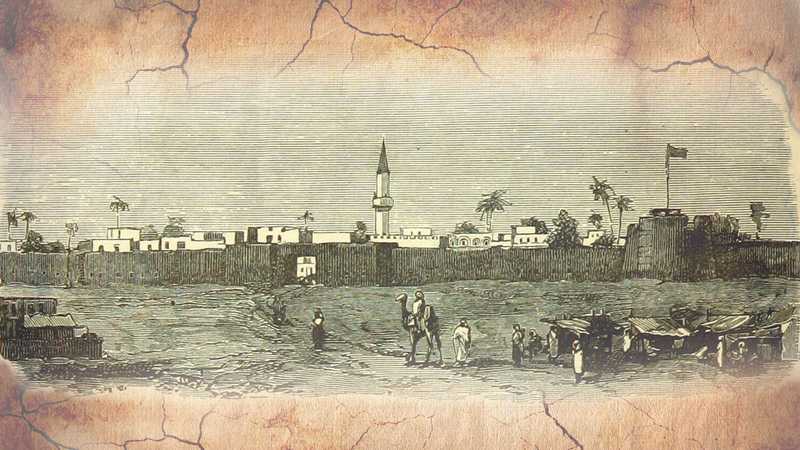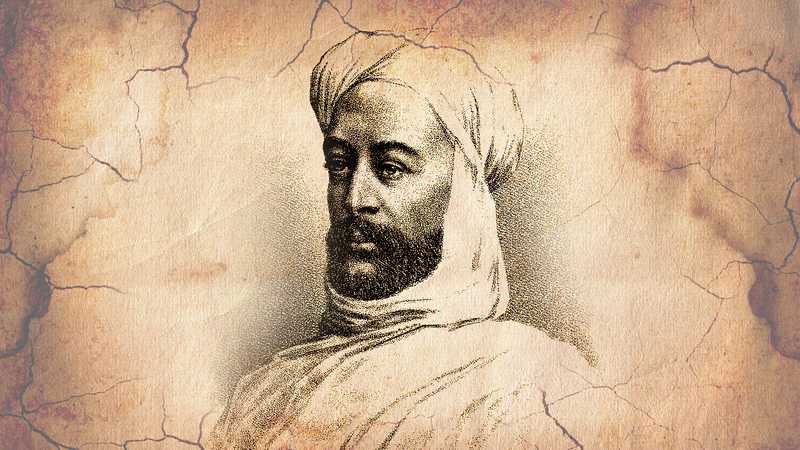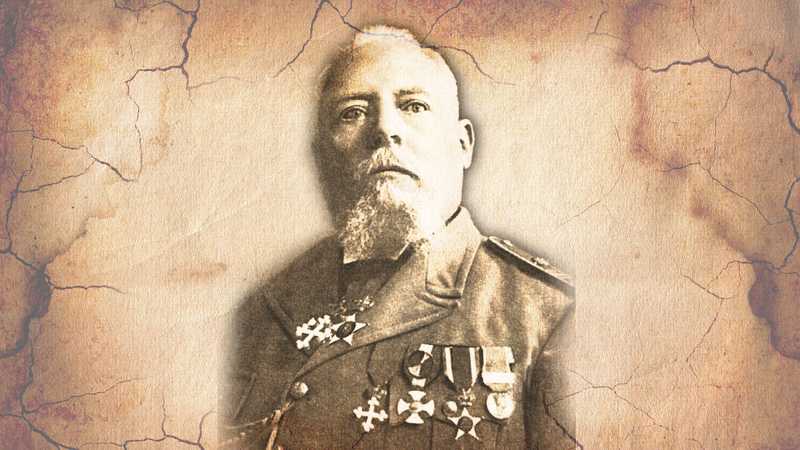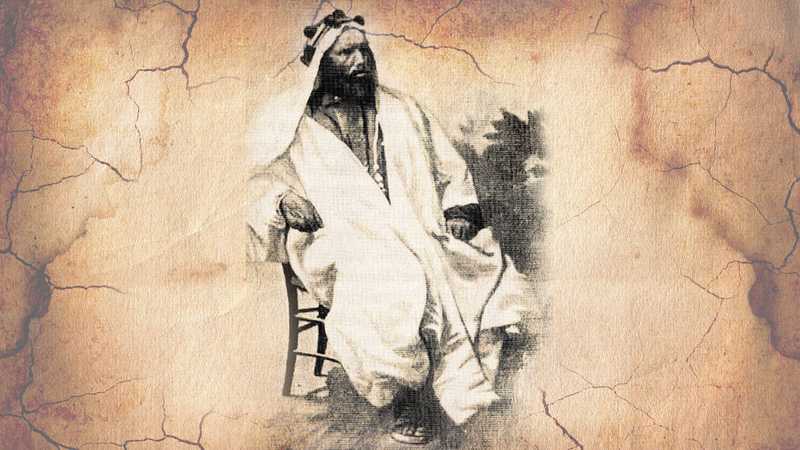Ras Alula Massacred the Nara and Kunama in Eritrea
22 Nov, 1886
Ras Alula of Abyssinia ordered a bloody raid on the Nara and Kunama ethnic groups, looting and pillaging their territory following his failed siege of Kassala.
After the failure of his siege attempt of Kassala, the Egyptian garrison town on the Sudanese border in the western lowlands of current-day Eritrea, Ras Alula turned around and ordered a ruthless raid of the Nara and Kunama ethnic groups, looting and pillaging their territory. According to the Italian administrator and judge Alberto Pollera, who studied the traditions of the Kunama and Nara societies by living among them for more than 5 years, about two thirds of the population of these ethnic groups were wiped out. (I Baria e i Cunama, pp 50-52)
 The fortified garrison and trading post of Kassala
The fortified garrison and trading post of Kassala
Alula, during his rule of Mereb Mellash, sustained his massive army by heavily taxing the local population and leading extensive bloody raids through out the central and northern highlands of Eritrea. Many of the local nobility were bitter about this and some did ally themselves with the Ottoman Khedivate of Egypt that ruled the eastern coastal plains of the Red Sea of current-day Eritrea. To the west of Mereb Mellash, past the lowlands mainly ruled by the Beni Amer, the Khedivate’s Sudanese territory reached the fortified trading garrison of Kassala. So Abyssinia would clash with the Egyptians constantly because of these territories.
Having levied heavy taxes and raided the northern central highlands in Bogos, Alula’s army marched southwest to the lowlands with the aim of capturing the Egyptian garrison at Kassala. Kassala, a lucrative trading post, surrounded by immense expanses of fertile land and abundant livestock was attractive not only to the Egyptians and the Abyssinians but also to the rebel Mahdists led by Muhammad al-Mahdi. The Islamic Mahdists, also known as the Dervishes, had rebelled against the Egyptian Khedivate and were warring not only with Egypt but also with Christian Abyssinia to the east. Because of this, the Nara and Kunama who lived throughout this territory were caught in the middle, in a non-stop cycle of bloody raids, enslavement of their women and children and forced military conscription of their men.
 Muhammad al-Mahdi, or Muhammad Ahmad bin Abdullah, the Mahdist leader who rebelled against the Egyptian Khedivate in Sudan
Muhammad al-Mahdi, or Muhammad Ahmad bin Abdullah, the Mahdist leader who rebelled against the Egyptian Khedivate in Sudan
Arriving there, Alula lay siege to the garrison and started to send raids though out the area to plunder livestock from the Nara and Kunama to support his army. As the siege took longer and got costly, he intensified these raids and devastated the population. The siege eventually failed and Alula decided to march back to his quarters in Asmara. But before he did, to deprive his enemies of any materiel and human booty, he decided to lay waste to the area, ravaging the land and killing most its people.
 Alberto Pollera, Italian colonial administrator and judge in Eritrea, who lived with the Kunama and Nara for 5 years studying their traditions
Alberto Pollera, Italian colonial administrator and judge in Eritrea, who lived with the Kunama and Nara for 5 years studying their traditions
Pollera claims, in later years, those that survived used the term “alula” to describe something damaging that seems to never have an end, showing the collective trauma of the devastation.

